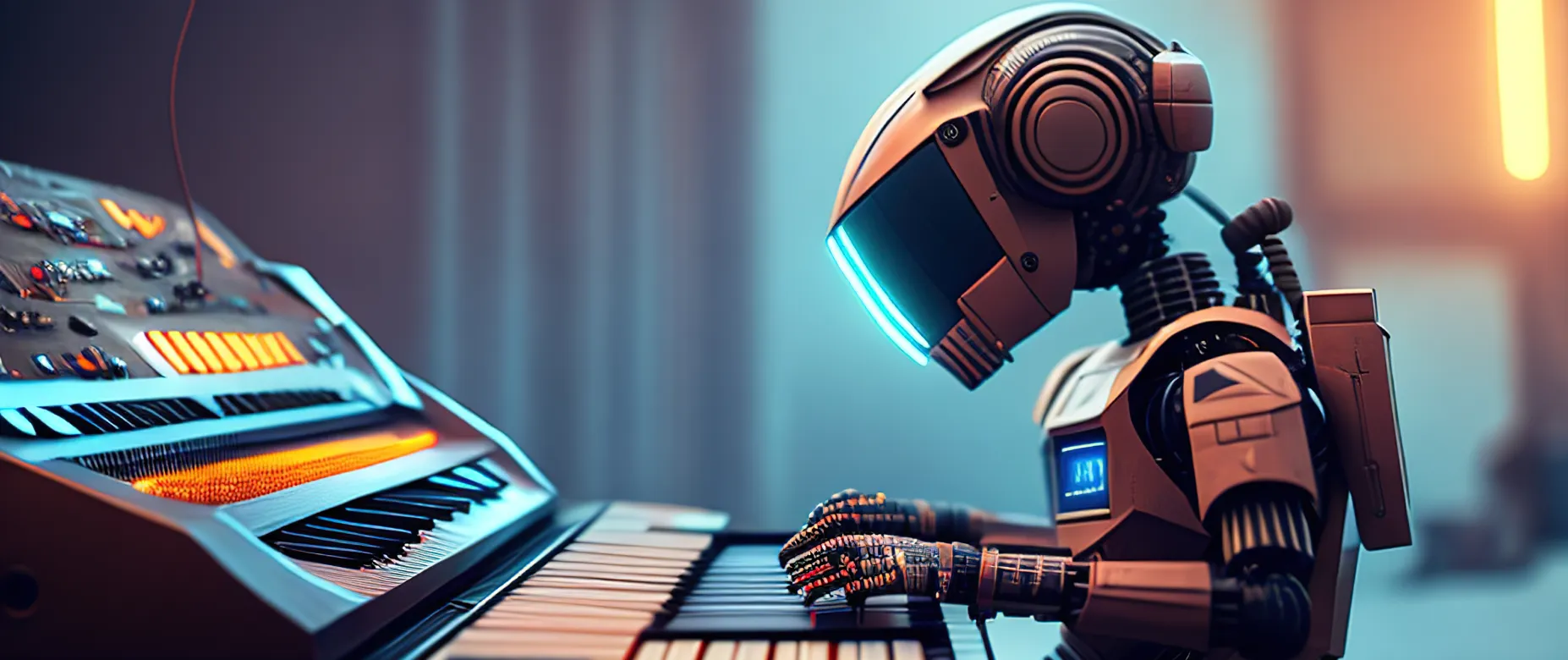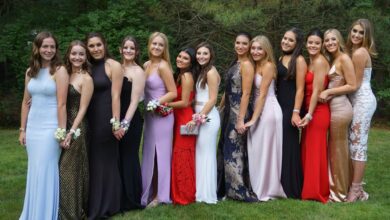AI-Generated Music: Exploring the Potential of a New Creative Tool
Table of Contents
Explore the world of AI-generated music! Learn how it works, its potential benefits and drawbacks, and how it is shaping the future of music.
What is AI-generated music and how does it work?
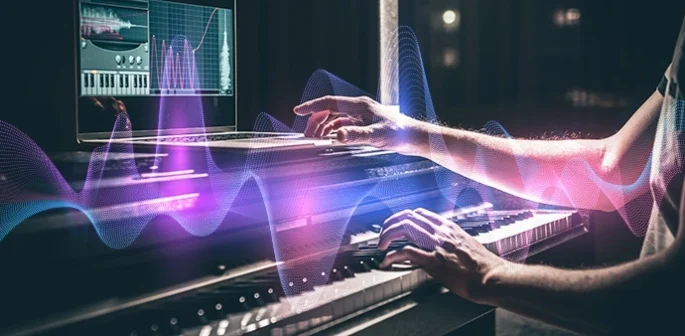
AI-generated music is music created with the help of special computer programs.
Instead of a human composer, special computer programs called algorithms are used to analyze existing music. These algorithms are like detectives, figuring out the patterns and building blocks that make up different styles of music. Once they have this knowledge, they can use it to create brand-new compositions.
It’s not just random sounds thrown together, though. These programs can consider many things, like the melody, harmony, rhythm, and even the emotions you might feel while listening. The music can be so well-crafted that it can sometimes be hard to tell if a human or a computer made it!
While some people might say AI music can’t capture the feelings and creativity of a human musician, others see it as an exciting new art form. As computers get even smarter, we can expect AI-generated music to keep surprising us with its originality and innovation.
Benefits of Using AI in Music
Making music can be a fun and creative process, but it can also be time-consuming and require a lot of different skills. That’s where AI comes in! Here are some ways AI is helping musicians:
- Saving Time: AI can handle repetitive tasks, freeing up the musician to focus on the creative aspects of music making.
- Boosting Creativity: AI tools can help generate new ideas, suggest different sounds, and even write melodies or lyrics. It’s like having a musical brainstorming buddy!
With AI as a helping hand, musicians can create music more efficiently and explore new creative possibilities.
AI and the Music Scene: A Few Examples
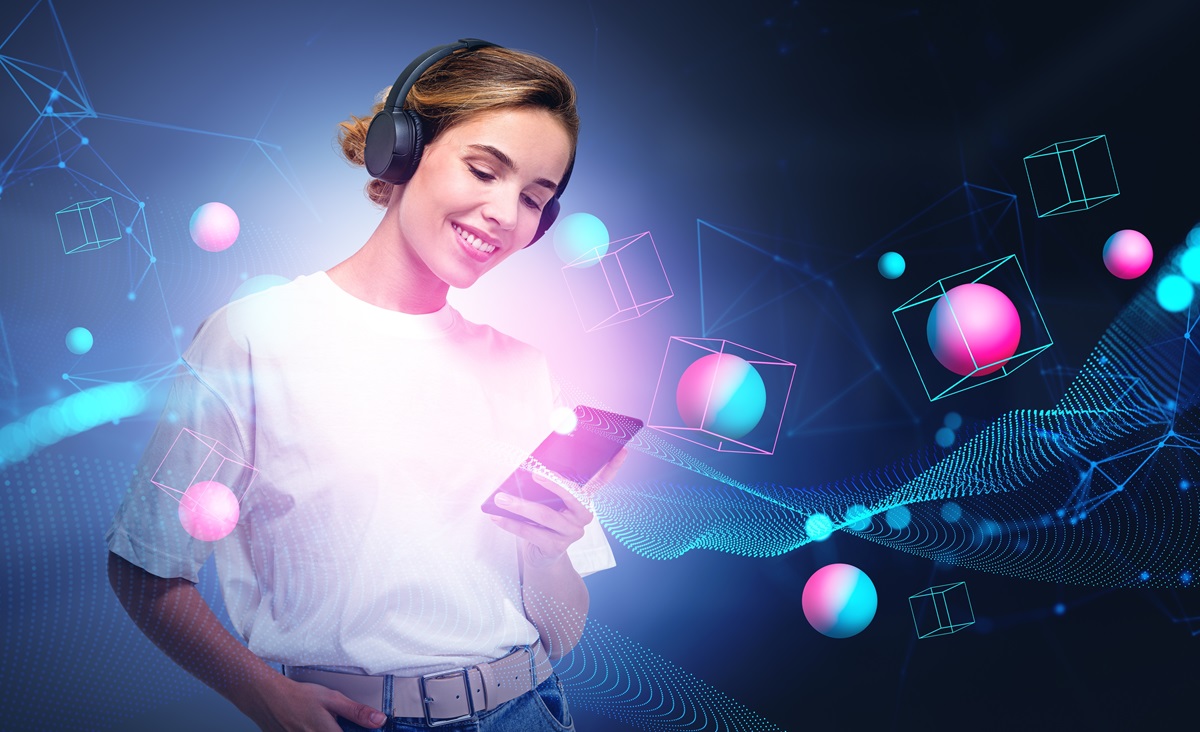
The world of music is embracing new technology, and AI (artificial intelligence) is playing a growing role. Here are a few examples of how AI is being used to create music:
AIVA (Artificial Intelligence Virtual Artist)
This AI tool helps create music in various styles, from classical and film scores to pop tunes.
Flow Machines
This research project uses AI to analyze existing music and then craft new compositions based on those patterns. They even have an album, “Hello World,” featuring AI-generated melodies and lyrics!
Amper Music
This platform is like a musical playground for users. Describe what kind of music you want, and the software creates a unique piece based on your choices.
The Endless AI Composer
This tool generates ambient music on the fly, letting you adjust the mood and style to fit your needs.
These are just a peek into the world of AI-generated music. As technology keeps evolving, we can expect even more exciting ways for AI to shape the future of sound.
Different Types of AI-Generated Music
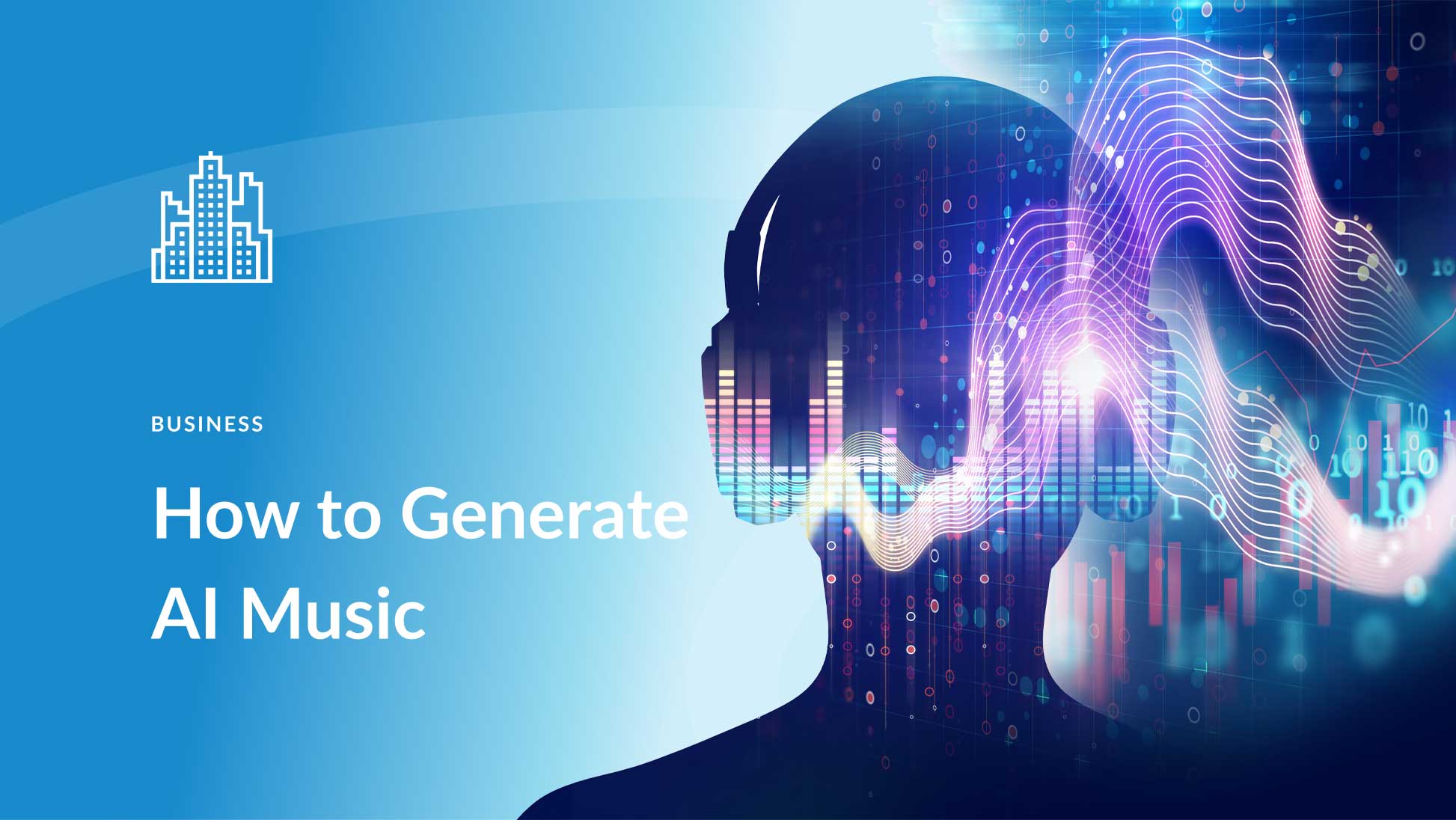
AI can be a creative partner for musicians, helping them explore new musical territory in different ways:
- Algorithmic Compositions: Musicians can use AI to create entirely new pieces using techniques like Markov chains or deep learning.
- Bringing Back the Classics: AI can transcribe existing recordings into sheet music, making it easier to learn and play older songs.
- Live Performance Boost: Musicians can use AI-generated backing tracks to add new sounds and textures to their live performances.
As technology continues to develop, the possibilities for AI in music production are wide open, making it an exciting field to watch.
Future of AI-driven Music
AI is making waves in the music industry, offering exciting possibilities for both musicians and listeners.
For musicians, AI tools can be a creative spark, providing new sounds, and techniques, and even composing entire pieces. This allows them to explore uncharted musical territory and push the boundaries of their art.
As AI gets more sophisticated, we can expect even more complex and intricate compositions. Imagine music that adapts to your mood or even creates personalized soundtracks for different activities.
However, it’s important to remember that AI is a tool, and like any tool, it can be used for good or bad. It’s crucial to use AI responsibly and ethically to ensure it enhances music, not diminishes it.
The future of music with AI is bright and filled with potential for innovation and discovery. It’s up to us to ensure this technology is used for the benefit of music and everyone who enjoys it.
Criticisms of AI-generated music
AI-generated music, while innovative, has sparked debate about its place as art. Here are some arguments against considering it true art:
Emotional Disconnect
Critics say AI music lacks the emotional depth and connection humans bring to music. Since algorithms create it, it may not evoke the same feelings or expressiveness as music composed by humans.
Originality Concerns
Some argue that even if AI music sounds novel, it’s not truly original because it’s based on analyzing existing music. They say it might just be a remix of existing elements, not a genuinely new creation.
Overreliance on Tech
Some fear AI could lead musicians to rely too heavily on technology, neglecting their creativity and intuition in favor of algorithms and software.
Dehumanization of Art
A broader concern is that AI in music creation is part of a trend where human creativity and emotion are replaced by machines.
Ethical Issues
Additionally, there are ethical concerns like ownership, copyright, and the impact of AI music on the music industry and musician jobs.
It’s important to consider these criticisms, but they don’t necessarily mean AI music has no value or potential as art. Like any new technology, it’s important to approach it with a critical and open mind, acknowledging both its limitations and its possibilities.
The possible impact of AI-generated music on the music industry
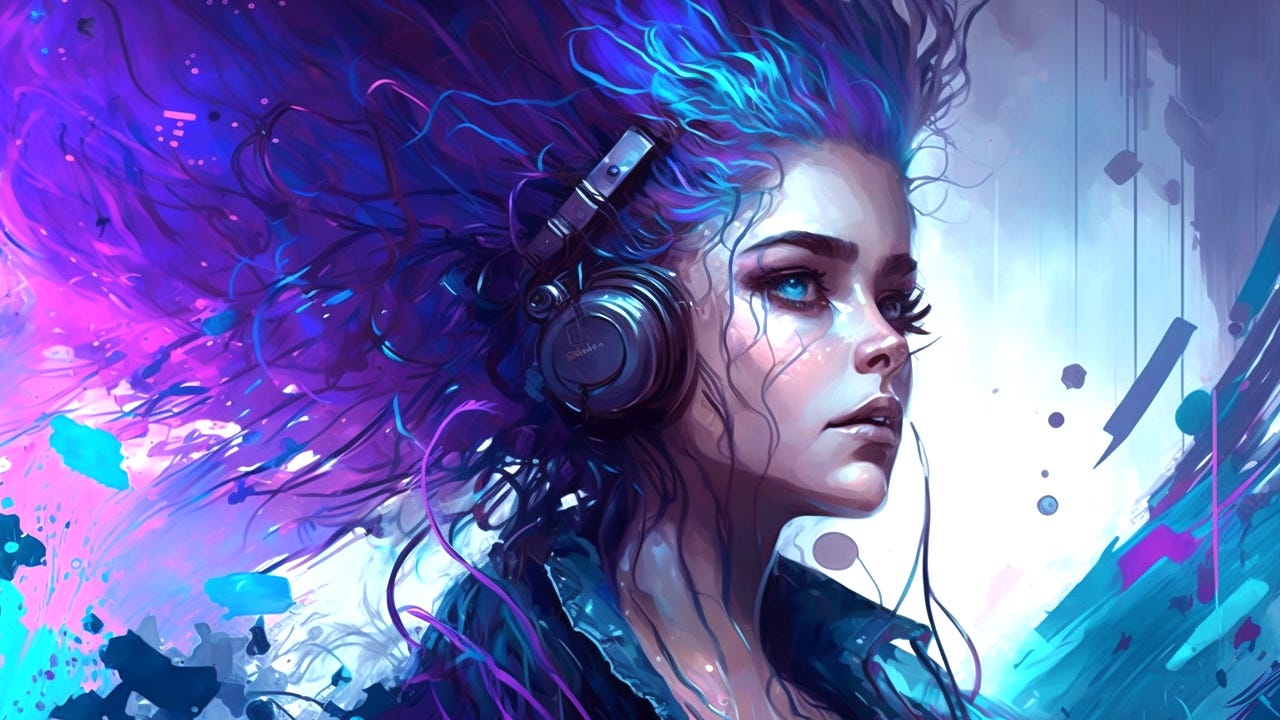
The rise of AI-generated music has the potential to shake things up in the music industry, both in how music is made and how it reaches our ears. Here’s a glimpse into what the future might hold:
Changing the way music is made
As AI gets smarter, it could challenge the traditional music creation process. Imagine AI tools helping write songs, compose music, or even perform alongside musicians. This could raise questions about the role of human creativity in music.
More music for everyone
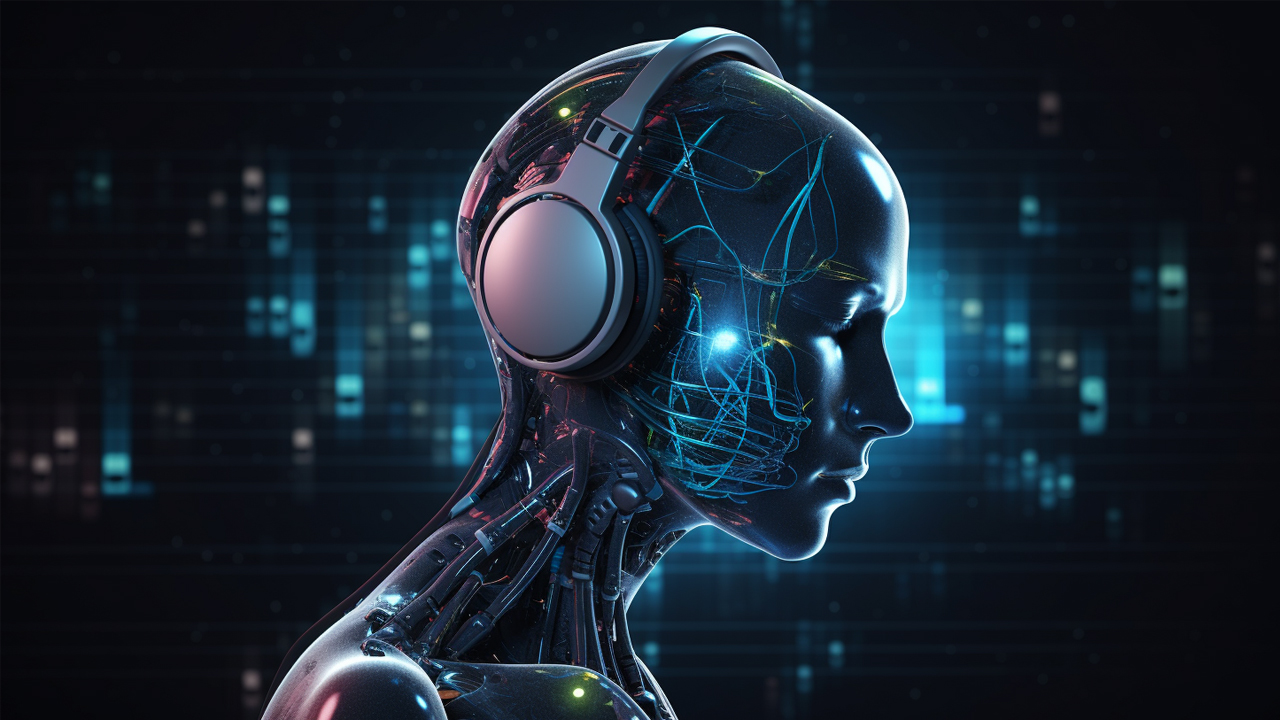
On the flip side, AI tools could make music creation more accessible. People who don’t have years of training or fancy equipment could use AI to create their music, potentially leading to a wider variety of musical styles and voices.
New ways to make money
AI-generated music could also lead to new business models. Imagine companies using AI-created music in ads or movies, opening up new income streams for those involved in music creation.
New legal questions
As AI music becomes more common, questions about ownership and copyright will arise. Who owns the rights to AI-made music? How should it be credited? These are important issues that need to be addressed as AI becomes more involved in music.
Job market changes
There’s also concern about how AI might affect jobs in music. If AI can replace some of the tasks currently done by musicians and composers, what will happen to those careers? This is a complex issue that needs careful consideration.
Overall, the impact of AI on music is complex and has both potential benefits and drawbacks. As technology keeps evolving, the music industry will need to adapt and find new ways to create and share music in this changing landscape.
Wrapping up
AI-generated music uses special programs to analyze existing music and create new compositions based on those patterns. It can be used to create new music styles, help musicians with composing or even personalize music for listeners.
While some argue it lacks the emotional depth of human-created music, AI music has the potential to be a powerful tool for both creation and enjoyment.
For More Information Please Visit These Websites Craiyon And Arturia

